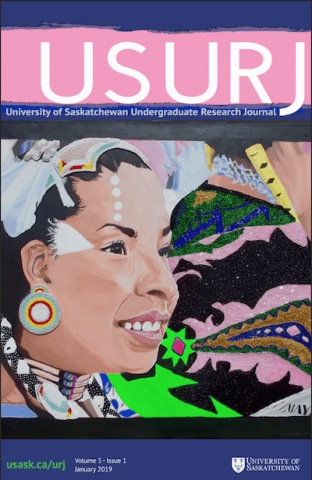
I’ve been an editor with the University of Saskatchewan Undergraduate Research Journal for the past two years, first as an associate editor in the interdisciplinary section of the journal and now as a senior editor with the natural sciences section.
This experience has provided me with a great opportunity to learn about the many aspects of open-access scholarly publishing and improve my research and writing skills.
This year’s first issue of the journal contains a breadth of subjects from paleobiology to philosophy. Topics explored within the journal are also diverse, ranging from research exploring the relationship between cannabis and epilepsy to a review of queer representation in mainstream cinema.
The journal also accepts artistic works and is currently working toward establishing a panel review process for these submissions. The journal provides a platform for undergraduate research and review articles from all disciplines. The works are freely available online, facilitating broad readership. The 93 articles published by the journal have been downloaded 72,464 times since its inception in 2014.
Bidushy Sadika, who graduated in October 2018 with a B.A. honours in psychology, published the article “Promiscuous versus Romantic Lesbianism in Films” with USURJ. Sadika found that the visibility of the article gave her a new sense of confidence in pursuing a career in research.
“I got an opportunity to build my social network — more people now know me and my research work, and that really feels amazing,” Sadika said in an email to the Sheaf.
Sadika is continuing on to a master’s program in September 2019.
All articles that are published in the journal have been peerreviewed by faculty in order to ensure they meet the discipline’s established guidelines and standards of work. USURJ uses double-blind peer review, which ensures the anonymity of both the author and the reviewer throughout the process.
Branden Neufeld, a master’s student in the department of biology, published an article with USURJ entitled “The Dire Consequences of Specializing in Large Herbivores.” He says that he was impressed with the rigour of the peer-review process for the journal.
“I had heard that the peer-reviewed publishing process was difficult… I thought USURJ would be taken less seriously as an undergraduate journal, but thankfully, it was not. My reviewer made sure that I covered all possible aspects of my topic thoroughly and fact-checked my sources,” Neufeld said in an email to the Sheaf.
As of October 2018, USURJ uses a Creative Commons Attribution-Noncommercial copyright licence. This allows others to use and build upon the work in a non-commercial setting as long as they acknowledge the author in the new work. Authors can also choose to apply any other Creative Commons licence to their work by informing the editorial board of their decision prior to publication.
Before this change, all rights remained with the author — excluding the journal’s right to publish the work first. However, reserving these rights can create barriers for others who wish to build upon the work. If an open licence — such as a Creative Commons licence — is not used, any future users must contact the author prior to using their work unless the use is covered by an exception in the Copyright Act.
Undergraduate -student authors tend to be a transient population with often-changed email addresses. Using a Creative Commons licence ensures that the author’s wishes are known for all potential future users even if they are difficult to track down.
Another exciting new development at USURJ is the addition of research snapshots to the accepted submission types. These are short abstract-style pieces that include author reflections on the personal value of the research experience along with preliminary results and next steps. Snapshots provide a unique opportunity for students to share their work when there’s not a polished final product.
USURJ is committed to sharing undergraduate research experiences and provides a great stepping stone for undergraduates to pursue further research.
To learn more about the journal, submit work or apply for a position as an editor, visit https://usurj.journals. usask.ca/ or contact the editorial board at usurj@usask.ca.
—
Sarah Foley
Graphic: Erin Holcomb / Supplied
Leave a Reply